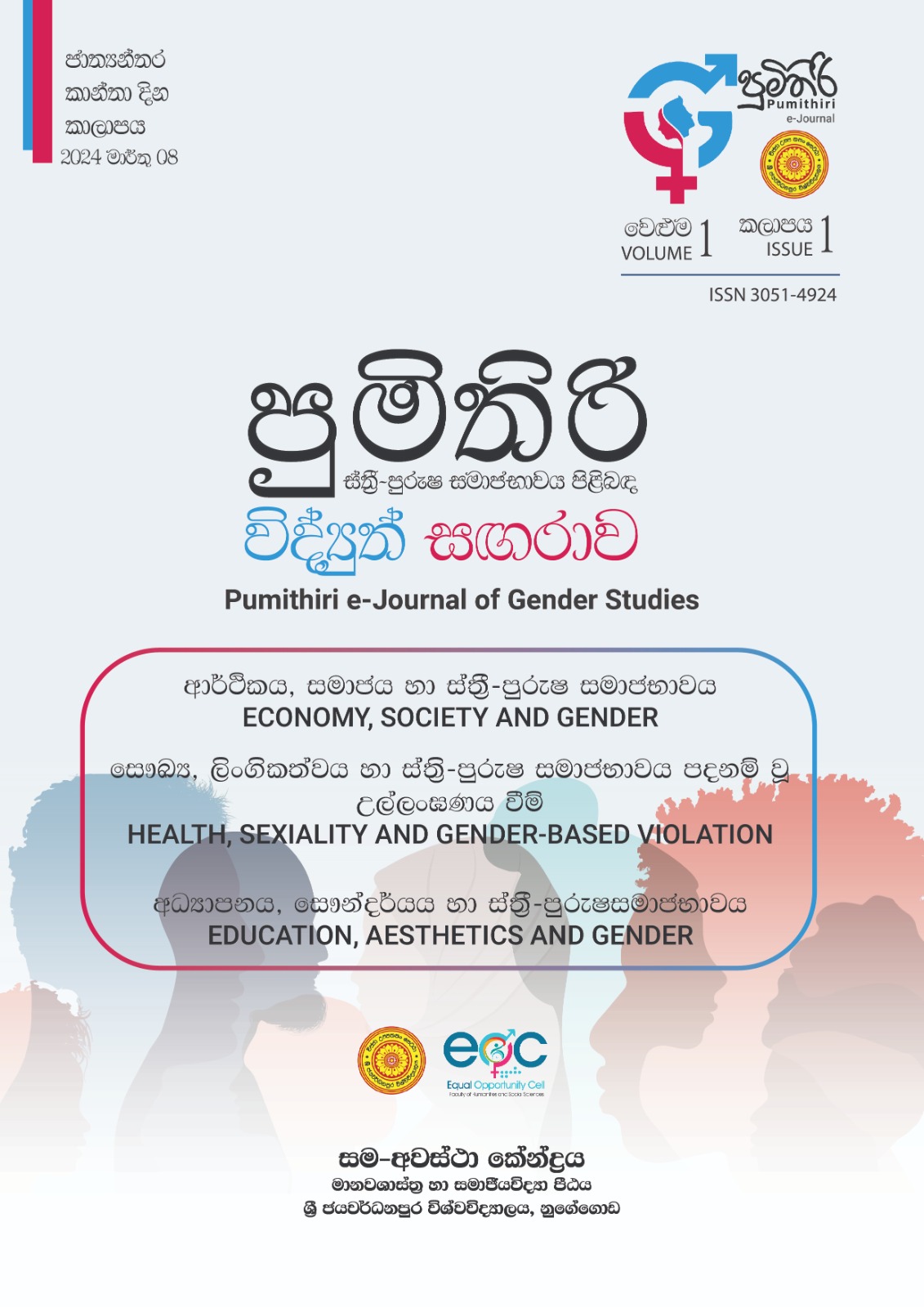WOMEN’S ROLE IN SRI LANKAN AGRICULTURE: A COMPREHENSIVE STUDY ON SOCIOECONOMIC CONTRIBUTIONS, CHALLENGES, AND OPPORTUNITIES FOR GENDER-INCLUSIVE AGRICULTURAL DEVELOPMENT
DOI:
https://doi.org/10.31357/pumithiri.v1i01.7801Keywords:
agriculture gender-inclusivity, women farmers, women labor, women roleAbstract
This comprehensive study focuses on the multifaceted roles of women in Sri Lankan agriculture, investigating their socio-economic contributions, challenges, and opportunities for gender-inclusive development. Despite comprising 51% of the population, women’s crucial contributions to the agricultural sector remain underappreciated. The study aims to bridge this knowledge gap by addressing key questions, including the specific socio-economic contributions of women in various stages of agricultural production, the challenges they face, existing opportunities for gender-inclusive development, and how understanding women’s roles can inform policies for sustainable agricultural advancement. In the Kalawana Divisional Secretariat, Ratnapura District, Sabaragamuwa Province, 120 women farmers were randomly selected by representing 10 GN Divisions for the study. The findings reveal significant contributions of women in various agricultural activities, from paddy cultivation to managing Chena lands and other cultivations influencing both income generation and household well-being. Challenges faced by women in different age groups include adapting to technology, financial constraints, and gender-specific barriers. Notably, younger women farmers express a preference for non-agricultural occupations, influenced by societal perceptions. Opportunities for gender-inclusive agricultural development include existing village-level programs and women's organizations. However, the study highlights perceived inadequacies in government support and the need for equal access to resources, technology adoption, and training programs. The conclusion emphasizes the importance of challenging traditional gender roles, implementing policies promoting inclusivity, and enhancing education and training opportunities for women in agriculture. Finally, changing the perception of the younger generation regarding agriculture’s significance is crucial for the sector’s sustainability and the well-being of society.



